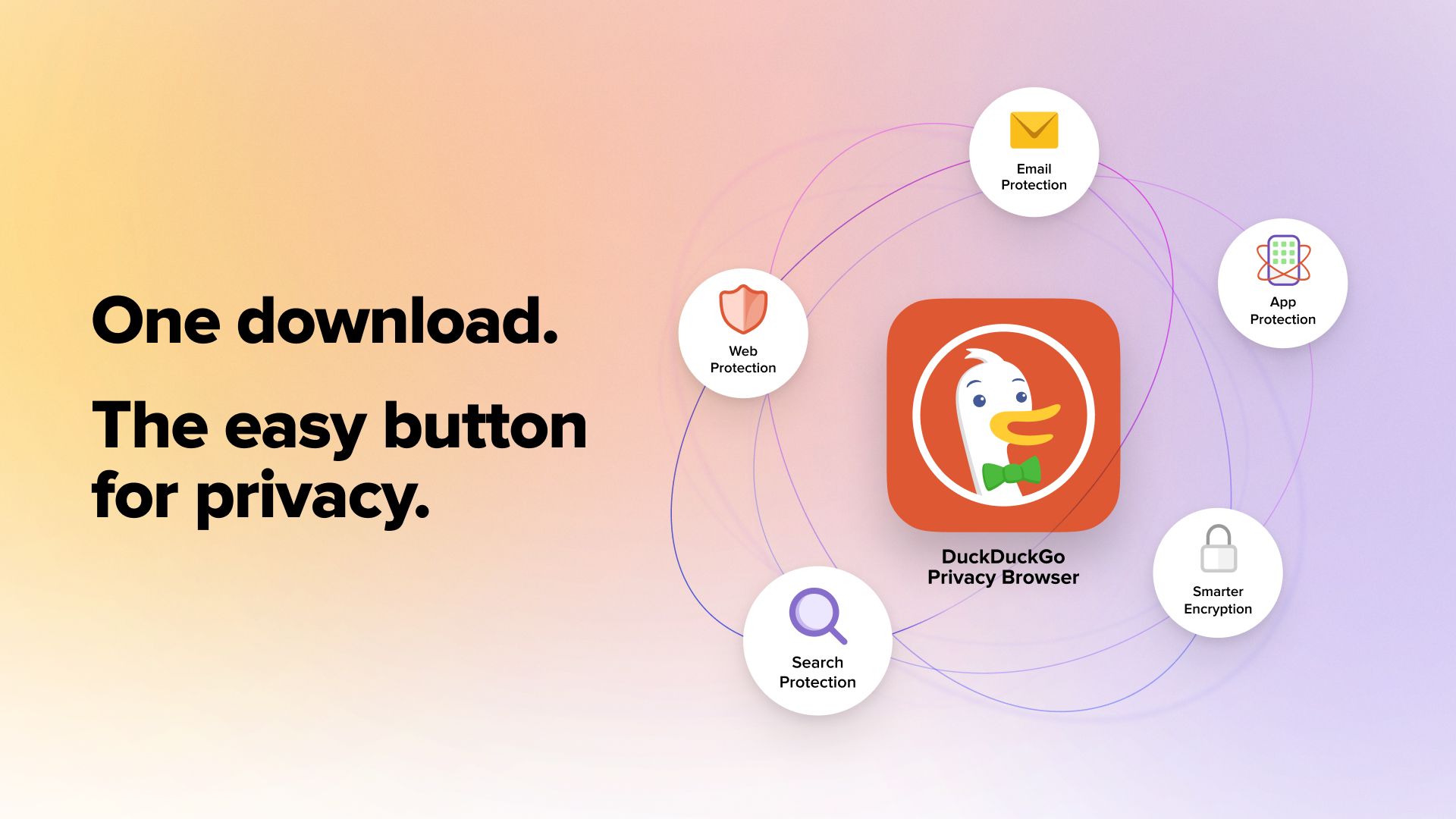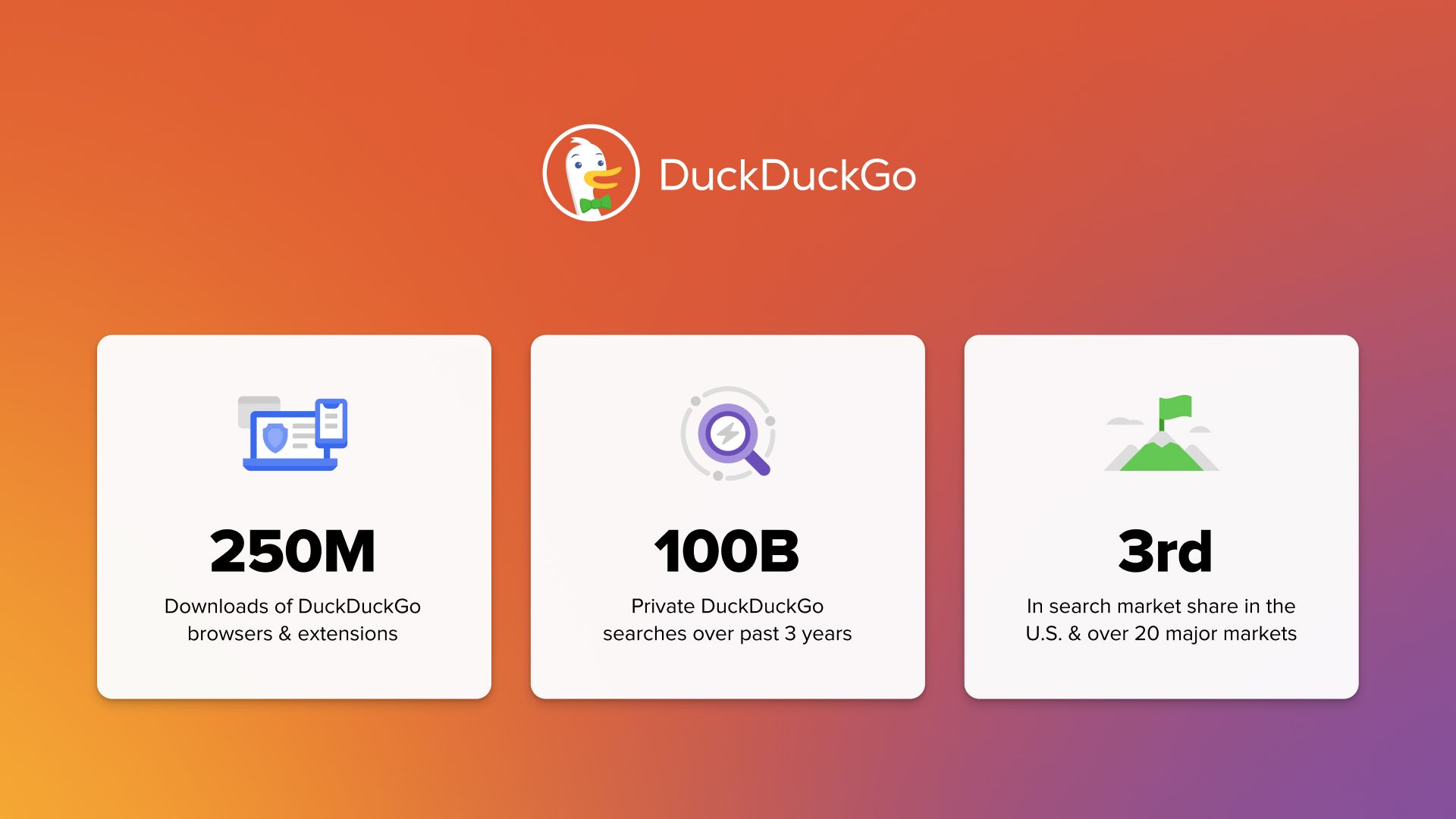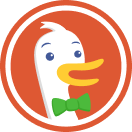Celebrating 15 Years of DuckDuckGo
Founder and CEO, Gabriel Weinberg, celebrates DuckDuckGo's past, present, and future:
Fifteen years ago, I launched DuckDuckGo from my basement in Valley Forge, Pennsylvania, hoping to offer a user-centric alternative to Google. This was 2008 – years before Snowden, a decade before Cambridge Analytica, and more broadly before the world had started to realize the scary power and creepy surveillance of companies like Google and Facebook.
Growth was very slow at first. It was just me behind the scenes for quite a while, putting together the search engine and asking people for feedback. I realized DuckDuckGo was resonating with people when things really started to pick up in 2011, so I started building out the team (many of whom are still at the company today) and we established our company vision to raise the standard of trust online.
Today, that vision remains the same. Fifteen years later we've built something truly rare in tech: a healthy, profitable company that protects user privacy, instead of exploiting it.
People care about their online privacy. That's what fuels our growth. According to a recent Forrester study, 87% of US online adults “use at least one privacy- or security-protecting tool online.”
While our product started as a search engine, today it’s a free, mobile and desktop browser with our private search engine built-in, along with more than a dozen other tracking protections, many that are unique to DuckDuckGo (if you want to know more about them, I’ve added a list below). This is combined with the simple promise laid out in our Privacy Policy: we don’t track you.
We design our product so that this uniquely comprehensive and overlapping set of privacy protections is seamless to users: it just works without having to know anything about the technical details or deal with complicated settings. All you have to do is switch your browser to DuckDuckGo across all your devices and you get privacy by default.

I’ve always believed that the easier we can make getting online privacy, the more people will switch to DuckDuckGo. That’s why our browser and browser extensions have been downloaded more than 250 million times. This has propelled our search engine to hold the #2 position in mobile market share and #3 overall in the U.S. and over 20 other major markets including the UK, Germany, France, India, Australia, and Canada. Over the past three years alone, people have made more than 100 billion private searches on DuckDuckGo.
I want to thank everyone who has and continues to use and support DuckDuckGo. We appreciate you!

And, to those who aren't users, we'd love for you to give us a try, or another try if it’s been a while since the last time. We’ve been continually improving our core search, browse, and email experiences. Looking forward, you’ll see DuckDuckGo introduce new product experiences that similarly work together to help you protect even more of what you do online.
I continue to believe there remains huge, pent-up demand for privacy-respecting alternatives to Google if it were easier to switch search and browser defaults across devices. That is, I believe we’d be much bigger, perhaps as much as ten times bigger, if it wasn’t for Google’s anticompetitive tactics.
In any case, with ever-increasing exploitation of personal data by Google, Facebook, and others, we believe our work is as important as ever. That’s why we’ll remain laser-focused on our product vision of being the “easy button” for privacy.
15 DuckDuckFacts for 15 years of DuckDuckGo
Now that you know more about what we do and why we do it, I thought I’d also share some things you might not know from our past 15 years:
- We’ve been an independent company since our founding in 2008.
- My sister made the original logo, which was refined by my wife before launch. The name of the duck mascot (on our logo) is Dax Brown.
- Not only did I work from my basement initially, but for the first few years, DuckDuckGo ran off of servers I maintained in my basement, too.
- In the early days crawling the web from my basement, the FBI showed up at my door since I had crawled a site they were monitoring.
- We pioneered a lot of search innovations over the years that Google eventually replicated, for example Instant Answers (which show you the information you searched for right on the top or the side of the search results page rather than just links to other sites) across a wide variety of topics, favicons next to results, infinite scroll, default encrypted search, not leaking search terms to websites when you click on results, banning content farms, and many more.
- If you don’t know about DuckDuckGo search bangs, you should! Bangs are shortcuts that quickly take you to search results on other sites. For example, when you know you want to search on another site like Wikipedia or Amazon, our bangs get you there fastest. A search for “!w mallard” will take you directly to the mallard Wikipedia page.
- Because of our strict Privacy Policy, we’ve developed ways to run tests and improve our products without sacrificing user privacy, for example anonymous split testing and showing local results.
- We have more than 1 million lines of active code, much of it open source.
- We’ve been profitable since 2014 based on private search ads, which are just based on the search results page you’re viewing (for example search for a car, you get a car ad) instead of being based on who other companies and their tracking algorithms assume you are as a person.
- We’ve helped advocate for digital rights online for over a decade, including playing a critical role in the Global Privacy Control standard, evolving search preference menus globally, and donating millions of dollars to like-minded organizations.
- We’ve been blocked in China since 2014.
- We needed to convince Google to give us the domain duck.com after years of them confusing users with it. Maybe that’s where the rumor started that we’re owned by Google, which of course couldn’t be farther from the truth.
- Our team has been completely distributed from the beginning. Our “headquarters” are in Paoli, Pennsylvania, but there are only a few people around there (including me).
- Only about half our team members and users are in the U.S.
- We have a company policy not to have any meetings on Wednesdays! You can read more about our unique, fully remote culture here. Join our amazing team (now about 250 people) who brings their passion and commitment to building our “easy button” for privacy.
Unpacking the "easy button" for privacy
Your privacy is constantly under threat by companies using your personal data, leaking it, or even selling it to others and then using it to try to manipulate you with creepy ads, discriminate against you, and more. To help prevent this from happening, DuckDuckGo browsers offer the most comprehensive privacy protection by default without breaking your online experience. Because trackers are always working to get around privacy protections, we’ve layered on many types of unique and innovative protections by default that don’t exist in most browsers or browser extensions. We’re continually working to improve these protections while also introducing new protections to address emerging threats.
For those interested, here’s some more info on our various privacy protections:
- Our private search engine doesn’t track you. That means unlike Google Search, we don’t save or share your search history, such that we have no way to tie your searches or website visits to you personally and we don’t keep profiles of our users.
- Our tracker blocking goes above and beyond what’s available by default from most other browsers. For example, our 3rd-party Tracker Loading Protection blocks hidden trackers from companies like Google and Facebook lurking on other websites before they even load. This blocks ads that rely on that creepy tracking. (Because so many ads work that way, you see way fewer ads – if any at all.) We also remove the whitespace left behind by those ads for a clean, distraction-free look without the need for an outside ad blocker.
- To identify trackers, we crawl the web with our Tracker Radar, which is also open source, as is our list of trackers. This crawl means our list is generally more up to date than other lists.
- Like some other browsers we offer 3rd-party Cookie Protection and Fingerprinting Protection, but we are generally more strict by default.
- Unlike most other browsers and extensions, we also offer 1st-party Cookie Protection, Link Tracking Protection, Referrer Tracking Protection, CNAME Cloaking Protection, and Embedded Social Content Tracking Protection, all by default, to further help stop companies from watching what you do online and capturing personal data.
- Our browser has Smarter Encryption, so that more of the websites you visit and links you click are securely encrypted, relative to other browsers. This is powered by data from our open source web crawler.
- Cookie Pop-up Management automatically selects the most private option from the cookie consent pop-ups it finds, and then hides the pop-ups, usually before you even see them.
- The Fire Button allows you to easily close all tabs and burn recent on-device browsing data in one click.
- Email Protection (beta) can hide your email address with unique @duck.com addresses when signing up for things online. Emails are stripped of trackers, and then forwarded to your existing email address.
- Duck Player, a feature that lets you watch YouTube videos without privacy-invading ads and keeps video views from impacting your YouTube recommendations.
- App Tracking Protection (beta), currently available in our Android browser, that helps block 3rd-party trackers in other apps on your phone, even when you’re not using them.
- Global Privacy Control (GPC) to help you express your opt-out rights automatically by telling websites not to sell or share your personal information.
- We also provide Google-specific tracking protections including Google AMP Protection, Google Topics Protection, Google FLEDGE Protection, and Google Sign-in Pop-up Protection.
- Finally, our Privacy Dashboard provides more transparency about what’s happening underneath the hood when you load a web page (just click on what looks like a shield – but is actually a duck foot – in the URL address bar).
You get all of this with one download, and more is coming – stay tuned!
